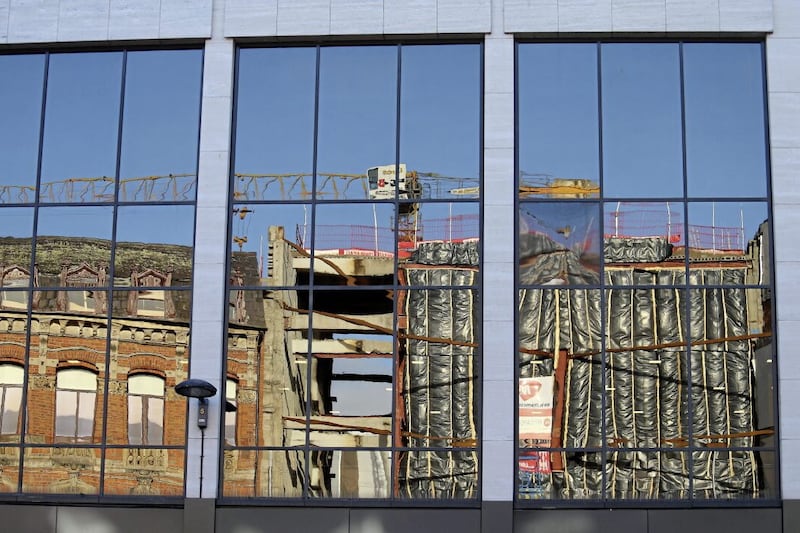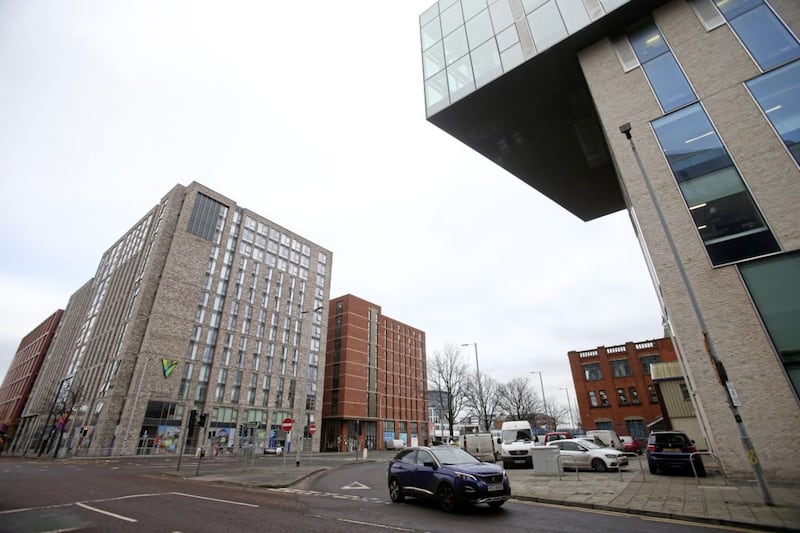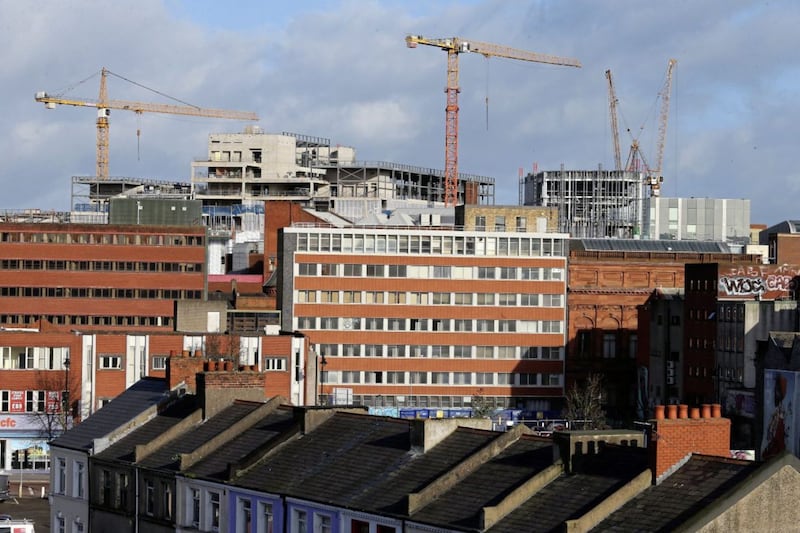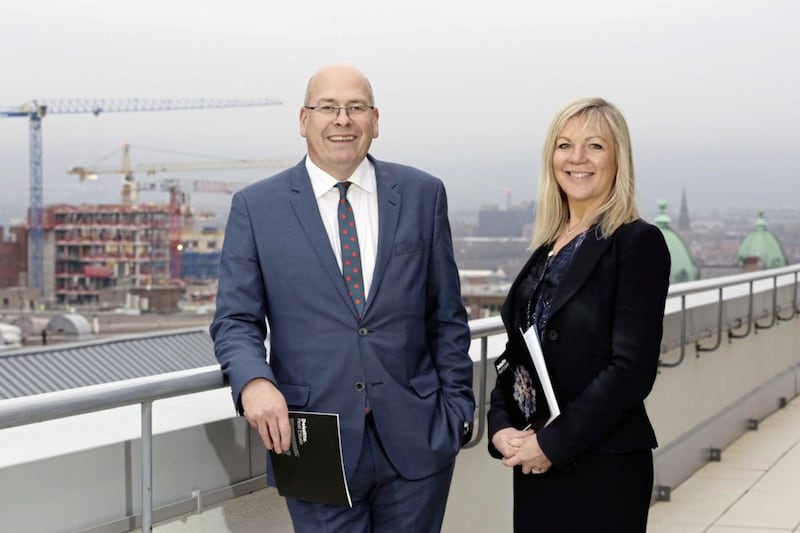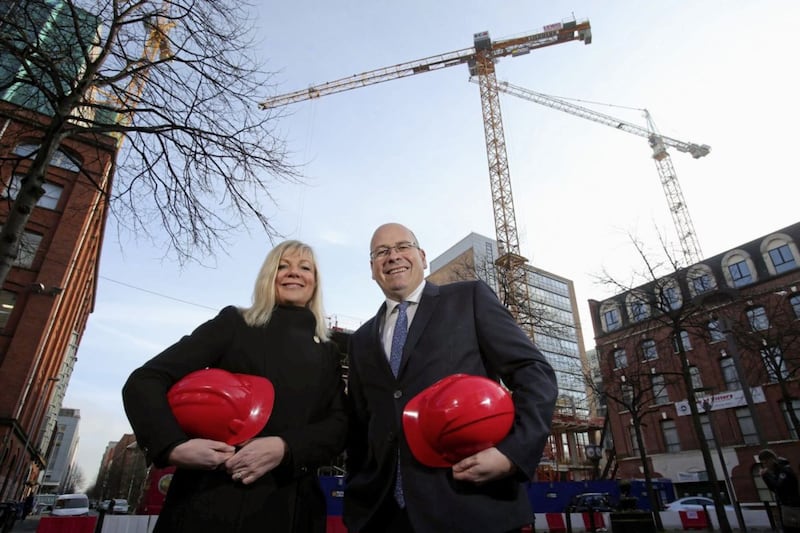AN old-fashioned headcount of tower cranes operating high up over the Belfast landscape indicates that construction activity in the city remains resilient if not spectacular, a new report says.
For while some indicators suggest that the building industry is hovering on the brink of a downturn, Deloitte's fourth annual Belfast Crane Survey points to 12 new projects having been started in the city in 2019 - up from nine the previous year.
But the 26 major schemes under construction or completed last year was down from 35 projects in 2018 and 30 in 2017.
And the report authors says infrastructure investment is needed to support future development if it is to meet previously set targets of new space by 2021.
The areas covered in the report are the city core, Waterfront, Titanic Quarter, transport hub, inner north and southern fringe, and the survey monitors new or current schemes undertaking significant refurbishment (ie office and retail at a minimum of 10,000 sq ft, residential schemes of 25 units or bigger, and education, leisure and hotel schemes).
The overall total includes nine office developments, four student accommodation projects, five residential developments, four educational facilities, three retail & leisure schemes and one hotel.
Activity was underpinned by sustained investment in grade A office development, with 980,000 sq ft of new and refurbished space under development or completed - 80,000 sq ft more than was completed or under construction in 2018.
Ongoing investment in high spec office development, much of which is pre-let, continues to be a positive for the city as it indicates that Belfast remains competitive in attracting investment and jobs are continuing to be created, particularly in high value sectors such as technology and professional services.
New projects started in 2019 included Belfast Harbour’s City Quays 3, the Mercantile on Donegall Square South and The Kelvin in College Square East.
And there continues to be a steady pipeline, with Kainos set to occupy One Bankmore Square and Bywater’s mixed-use scheme receiving planning approval.
Simon Bedford, partner in the Deloitte Real Estate practice, said: “While 2019 was a quieter year for Belfast, the city continued to show resilience in the face of uncertainty over Brexit and the absence of an Assembly.
“The combination of challenges has slowed progress, but many of the pieces remain in place which, if allowed, are ready to accelerate regeneration and investment in the city.
“The city has made concerted efforts to consolidate the step change in development experienced over the past number of years. But there are challenges which require urgent work and investment in major projects, including the city’s drainage and waste water system is a priority.”
Suzanne Wylie, chief executive of Belfast City Council, said: “We're on course to deliver against the objectives set out in the Belfast Agenda to see our city transformed into an even more vibrant, innovative and connected place to live, work and relax.
“It's encouraging to see the ongoing growth and breadth of development projects brought together in the crane survey.
“Belfast is a city that continues to attract investment, and while we've seen positive developments in sectors such as hotels, student accommodation and offices in recent years, there's still much to be done to encourage more people to live in the city centre and to develop other elements of the economy, which will require collaboration with stakeholders across the private, public and third sectors.”
A number of schemes are planned which hold transformative potential for the city – including Tribeca Belfast, Sirocco Works and Odyssey Quays.
But the pre-construction phase for these projects has been extensive and timelines for cranes to be on their sites remain uncertain.
Mr Bedford added: “It remains to be seen if this is the way forward for Belfast, or if the smaller-scale, individual development approach which has been predominant in recent years will supersede the need for large schemes.
“The pace of EU exit negotiations is weighing heavily on business sentiment, and therefore significant capital investment. While Belfast has made significant strides towards its Grade A office space targets set-out in the Belfast Agenda, it has done so in the face of significant and continuing headwinds.”
Both retail and leisure developments came back to life in 2019, with an uptick in investment in Belfast’s main shopping areas following the Bank Buildings fire, including redevelopment of the former BHS premises on Castle Lane and Calvert House on Castle Place.
The £17m Odyssey Pavilion refurbishment also represents the first major investment in a landmark leisure space for several years.
There was a downturn last year in hotel developments and student accommodation projects, but these are expected to rebound upwards in line with phase two of the long-delayed Ulster University campus.



